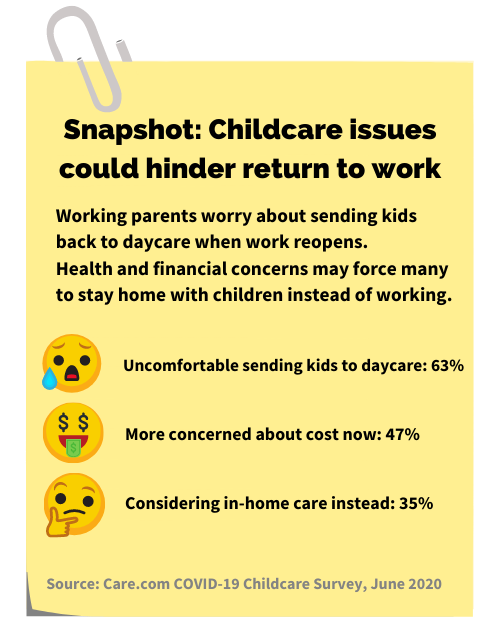New school year brings heightened anxiety around FMLA
 As with all things pandemic-related, some school districts will reopen this month or next, others won’t and still others will use a combination of classroom teaching and distance learning. This makes going back to school even more fraught for parents.
As with all things pandemic-related, some school districts will reopen this month or next, others won’t and still others will use a combination of classroom teaching and distance learning. This makes going back to school even more fraught for parents.
Remember, employees who can’t work or telecommute because they have to look after their kids due to school closures can take up to 12 weeks of paid sick/FMLA leave through the end of the year. And then there’s the regular FMLA for you to contend with, too.
Special ed meetings are FMLA-qualifying. The Department of Labor has concluded intermittent leave under the regular FMLA rules is appropriate when employees must take time off from work to attend special education committee meetings involving their children’s care.
Recent case: Two children had serious health conditions under the FMLA. Four times a year their mom attended school meetings where their educational and medical needs, well-being and progress were discussed. Upon certification from her children’s doctor, she requested intermittent FMLA leave to attend the meetings. Her employer denied the intermittent leave request.
In response to an inquiry, the DOL concluded she was entitled to take intermittent leave because the meetings qualified as medical care. DOL: The children’s doctor need not be present for the meetings to qualify as medical care. She attends the meetings to help participants make medical decisions concerning her children’s medically-prescribed speech, physical and occupational therapy; to discuss their well-being and progress with service providers; and to ensure the school environment remains suitable. (FMLA 2019-2-A)
State laws. The FMLA isn’t your only concern. Arizona, California, Colorado, Connecticut, the District of Columbia, Maryland, Massachusetts, Nevada, Rhode Island and Vermont have family and medical leave laws requiring paid leave when parents must care for their kids who are sick.
Further, California, Colorado, Illinois, Louisiana (at employers’ discretion), Massachusetts, Minnesota, Nevada, New Jersey, Rhode Island and Vermont have laws requiring paid or unpaid leave for employees who take off work for school activities. For more information, visit your state labor department’s website.
Expect backlash if you require childcare for remote workers
A San Diego company faced public scorn last month after local media reported that it fired a woman because her young children were making noise in the background of her teleconference calls.
Like many working parents during the pandemic, she was unable to find childcare for her two young kids. She completed all her tasks and clients never complained. The only complaints came from her male boss.
Such a lack of employer compassion will drain morale and spike turnover. Also, it’s illegal to fire a woman based on parental responsibilities if you don’t hold similarly situated male staff to the same standard.
Another recent example: Florida State University told work-from-home employees that if they didn’t find care for their children by August 7, their permission to work remotely would be revoked. When the memo leaked, the backlash was quick.
Employees complained they were being put in a no-win position. In many locations, daycare centers haven’t fully reopened, and summer camps are cancelled. So they had no option but keep the kids at home.
Finally, the university felt the heat and retreated, suggesting employees “coordinate with their supervisors on a schedule that allows them to meet their parental responsibilities.”
What employers should consider: A flexible approach is the better one. Schools have varying plans for the fall. Employers who don’t or can’t call everyone back to the office may want to review the childcare and school opening plans in their area and adjust their own accordingly. For example, if schools operate on a three-days-at-school, two-days-home schedule, employers may want to set a similar schedule for parent employees.







